FORMATION
La psychologie pour les enseignants. Entretien avec Franck Ramus.

Directeur de recherche au CNRS, Franck Ramus travaille au Laboratoire de Sciences Cognitives et Psycholinguistique où il dirige l'équipe « Développement cognitif et pathologie ». Ses travaux de recherche portent sur le développement cognitif de l'enfant, ses troubles, ses apprentissages scolaires, ses bases cognitives et cérébrales, et ses déterminants génétiques et environnementaux. Il est également membre du comité scientifique de l’éducation nationale (CSEN).
Franck Ramus est à l’origine du MOOC «La psychologie pour les enseignants», une formation en ligne qui propose des éléments de psychologie concrets et utiles dans toutes les disciplines, à tous les niveaux de scolarité, dans trois domaines cruciaux de l’apprentissage : la mémoire, le comportement et la motivation. Cette formation a démarré le 9 novembre 2021.
Lire l’entretien.
Une PSL- Week dédiée aux sciences de l'audition
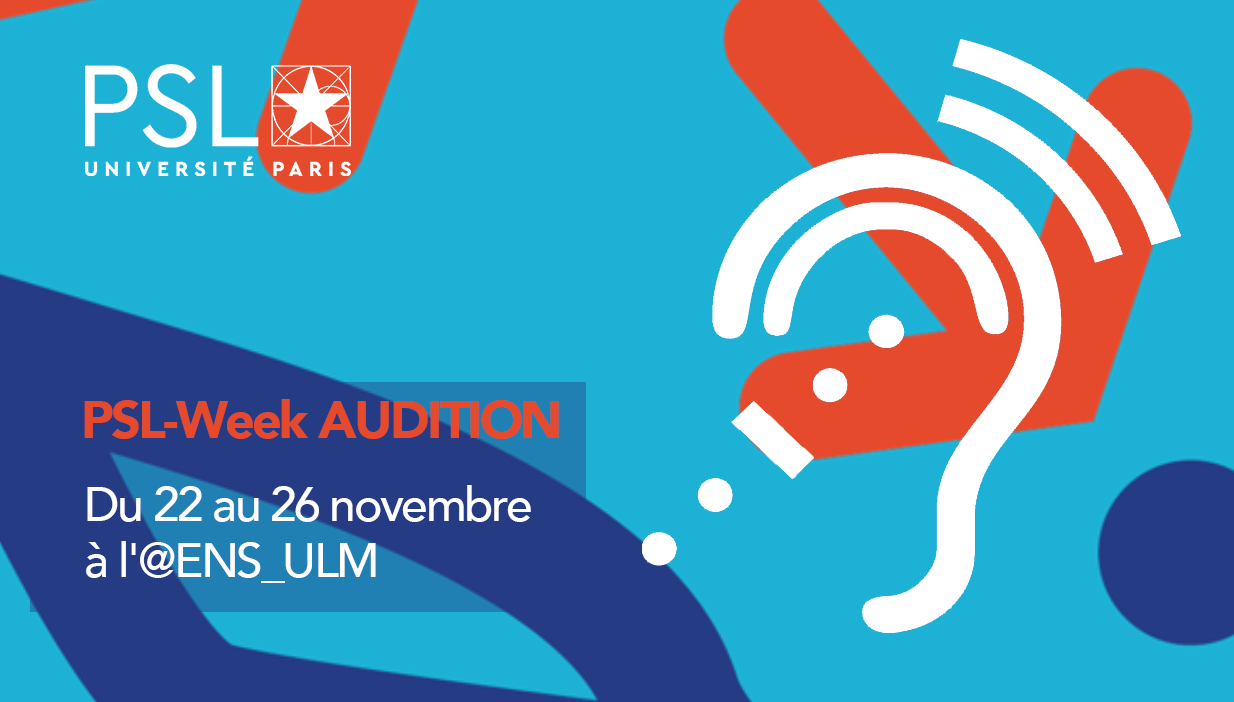
Initiées en 2014, les PSL weeks sont des semaines inter-écoles durant lesquelles plusieurs établissements de PSL se regroupent pour proposer aux élèves de PSL une offre de cours mutualisée. Les PSL-weeks permettent aux PSL-ien.ne.s de pousser la porte des amphithéâtres d'autres établissements de PSL.
Chercheur au Laboratoire des Systèmes Perceptifs (LSP), Christian Lorenzi coordonne cette année la PSL-Week « Audition » qui propose un programme riche dédié aux sciences de l’audition. Rencontre avec ce spécialiste de l’audition.
Lire l'entretien.
RECHERCHE
Covid-19 : un chatbot pour répondre à l’hésitation vaccinale
 Et si interagir quelques minutes avec un chatbot permettait de répondre efficacement aux doutes sur les vaccins ?
Et si interagir quelques minutes avec un chatbot permettait de répondre efficacement aux doutes sur les vaccins ?
Dans une étude publiée le 28 octobre 2021 par la revue Journal of Experimental Psychology: Applied, Sacha Altay, Anne-Sophie Hacquin, Coralie Chevallier et Hugo Mercier montrent que ce type d’outil peut inciter les personnes hésitantes à vouloir se faire vacciner.
Lire l'article.
Rencontre avec le philosophe de l'esprit et chercheur en sciences cognitives Dustin Stokes, invité à l'Institut Jean Nicod

Dustin Stokes est professeur associé de philosophie à l'Université de l'Utah. Ses recherches portent notamment sur la perception, l'imagination, la pensée et le comportement créatifs. Sa venue à l'Institut Jean Nicod en tant que directeur d'études invité à l'EHESS a été l'occasion pour la communauté scientifique de découvrir ou d’en apprendre plus sur ses travaux à travers une série de quatre conférences.
Directeur d'études de l'EHESS et membre de l'Institut Jean Nicod, Jérôme Dokic, le présente à travers un entretien questionnant ses travaux sur l'influence de la pensée sur la perception et ses méthodes de travail interdisciplinaires en philosophie et sciences cognitives.
Lire l'article.
PRIX
Sophie Bavard, une jeune chercheuse fière de contribuer à la valorisation des femmes dans la science
 Post-doctorante en neurosciences cognitives et computationnelles, Sophie Bavard est lauréate du prix « Jeunes talents France » 2021 L'Oréal-UNESCO du programme « Pour les Femmes et la Science ».
Post-doctorante en neurosciences cognitives et computationnelles, Sophie Bavard est lauréate du prix « Jeunes talents France » 2021 L'Oréal-UNESCO du programme « Pour les Femmes et la Science ».
Ce prix vient récompenser ses travaux sur l’importance du contexte dans la prise de décision et lui permet de continuer ses recherches. Rencontre avec une chercheuse passionnée, qui voit son engagement pour les femmes dans le milieu scientifique se concrétiser à travers ce prix.
Lire l'article
EVENEMENT
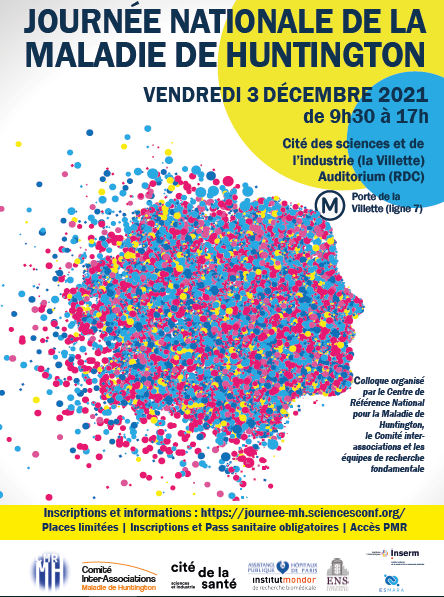
Journée nationale « Maladie de Huntington »
Le 3 décembre aura lieu la quatrième journée nationale de la Maladie de Huntington à la Cité des sciences et de l’industrie de la Villette à Paris.
L’équipe de NeuroPsychologie Interventionnelle (NPI) co-organise cet événement avec le Centre de Référence National pour la Maladie de Huntington et le Comité inter-associations (associations d'usagers).
Psychologue spécialisée en neuropsychologie, et membre du NPI, Marine Lunven nous explique ce qu'est cette maladie neurodégénérative rare, présente l'état de la recherche et l’importance d’organiser un tel événement.
Lire l'article
DANS LES MEDIAS
Un verre avec… Bastien et sa désorientation
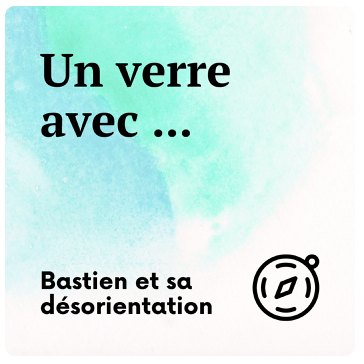 Bastien Perroy est doctorant à l’Institut Jean Nicod. Il travaille sur la désorientation des voyageurs à la RATP.
Bastien Perroy est doctorant à l’Institut Jean Nicod. Il travaille sur la désorientation des voyageurs à la RATP.
Invité du podcast "Un verre avec ...", il parle de son parcours, de ses choix de vie, notamment celui qui l'a amené à passer d'un grande entreprise privée à la philosophie en sciences cognitives, et de ses travaux de recherche sur la désorientation.
Ecouter le podcast.
Alex Cayco, entretien autour du cerveau et de l'intelligence

Invitée du podcast de Mike Livermore, Alex Cayco, "junior professor" au Laboratoire de Neurosciences Cognitives et Computationnelles, parle du cerveau et de l'intelligence. Alex Cayco s'intéresse à la façon dont différentes régions du cerveau se coordonnent pour un contrôle moteur flexible.
Ecouter le podcast.
La comportement de l'enfant : éducation positive et classique, faut-il trancher ?

Discussion avec Franck Ramus, invité de "The Parents Show", sur le comportement de l’enfant : la punition est-elle indispensable pour changer le comportement ?
Ecouter le podcast.
Les différences cérébrales entre les sexes ne se réduisent pas aux différences de taille du corps
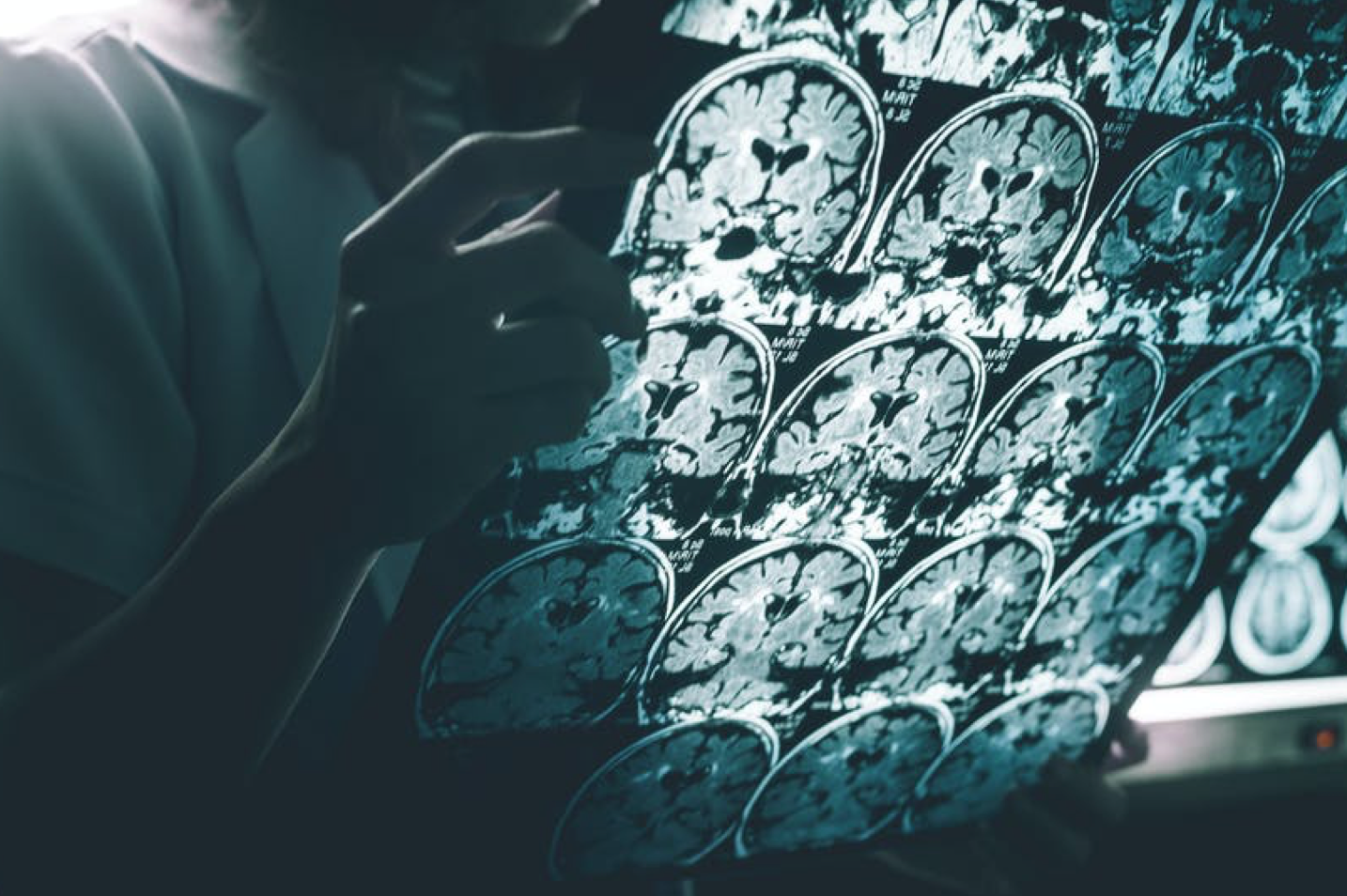
Franck Ramus et son équipe ont publié les résultats d’une vaste étude d’imagerie cérébrale sur les différences cérébrales anatomiques entre les sexes (40 000 participants).
Dans un article publié sur www.theconversation.com, il explique ce que l'étude montre, et ne montre pas.
Lire l'article.
A (RE)VOIR
Le smartphone vu par les sciences cognitives : apprentissage et numérique
A l'occasion de la Fête de la Science, PSL a organisé un festival de la Science pour permettre au public de découvrir la richesse de la recherche pluridisciplinaire menée dans les 140 laboratoires qui composent l'université. C'est dans ce cadre qu'un public lycéen a été invité à assister à une série de conférences à l'ENS, pour découvrir les enjeux contemporains majeurs – environnemental, scientifique, technologique, économique, géopolitique – que cache un objet aussi usuel que le smartphone.
Franck Ramus a présenté le smartphone vu par les sciences cognitives.
QUELQUES PUBLICATIONS RECENTES
Sarah Attia, Andrew King, Léo Varnet, Emmanuel Ponsot, and Christian Lorenzi (2021). Double-pass consistency for amplitude- and frequency-modulation detection in normal-hearing listeners, The Journal of the Acoustical Society of America 150, 3631, doi:10.1121/10.0006811
Résumé :
Amplitude modulation (AM) and frequency modulation (FM) provide crucial auditory information. If FM is encoded as AM, it should be possible to give a unified account of AM and FM perception both in terms of response consistency and performance. These two aspects of behavior were estimated for normal-hearing participants using a constant-stimuli, forced-choice detection task repeated twice with the same stimuli (double pass). Sinusoidal AM or FM with rates of 2 or 20 Hz were applied to a 500-Hz pure-tone carrier and presented at detection threshold. All stimuli were masked by a modulation noise. Percent agreement of responses across passes and percent-correct detection for the two passes were used to estimate consistency and performance, respectively. These data were simulated using a model implementing peripheral processes, a central modulation filterbank, an additive internal noise, and a template-matching device. Different levels of internal noise were required to reproduce AM and FM data, but a single level could account for the 2- and 20-Hz AM data. As for FM, two levels of internal noise were needed to account for detection at slow and fast rates. Finally, the level of internal noise yielding best predictions increased with the level of the modulation-noise masker. Overall, these results suggest that different sources of internal variability are involved for AM and FM detection at low audio frequencies.
Charlotte Caucheteux, Alexandre Gramfort, Jean-Rémi King (2021). Model-based analysis of brain activity reveals the hierarchy of language in 305 subjects. EMNLP 2021 - Conference on Empirical Methods in Natural Language Processing, Punta Cana (and Online), Dominican Republic.
Résumé:
A popular approach to decompose the neural bases of language consists in correlating, across individuals, the brain responses to different stimuli (e.g. regular speech versus scrambled words, sentences, or paragraphs). Although successful, this 'model-free' approach necessitates the acquisition of a large and costly set of neuroimaging data. Here, we show that a model-based approach can reach equivalent results within subjects exposed to natural stimuli. We capitalize on the recently-discovered similarities between deep language models and the human brain to compute the mapping between i) the brain responses to regular speech and ii) the activations of deep language models elicited by modified stimuli (e.g. scrambled words, sentences, or paragraphs). Our model-based approach successfully replicates the seminal study of (Lerner et al., 2011), which revealed the hierarchy of language areas by comparing the functional-magnetic resonance imaging (fMRI) of seven subjects listening to 7 min of both regular and scrambled narratives. We further extend and precise these results to the brain signals of 305 individuals listening to 4.1 hours of narrated stories. Overall, this study paves the way for efficient and flexible analyses of the brain bases of language.
Alain de Cheveigné (2021). Harmonic Cancellation—A Fundamental of Auditory Scene Analysis, Trends in Hearing.doi:10.1177/23312165211041422
Résumé :
This paper reviews the hypothesis of harmonic cancellation according to which an interfering sound is suppressed or canceled on the basis of its harmonicity (or periodicity in the time domain) for the purpose of Auditory Scene Analysis. It defines the concept, discusses theoretical arguments in its favor, and reviews experimental results that support it, or not. If correct, the hypothesis may draw on time-domain processing of temporally accurate neural representations within the brainstem, as required also by the classic equalization-cancellation model of binaural unmasking. The hypothesis predicts that a target sound corrupted by interference will be easier to hear if the interference is harmonic than inharmonic, all else being equal. This prediction is borne out in a number of behavioral studies, but not all. The paper reviews those results, with the aim to understand the inconsistencies and come up with a reliable conclusion for, or against, the hypothesis of harmonic cancellation within the auditory system.
Baptiste Caziot, Pascal Mamassian (2021). Perceptual confidence judgments reflect self-consistency. Journal of Vision, 21, 8, doi:10.1167/jov.21.12.8
Résumé :
Each perceptual decision is commonly attached to a judgment of confidence in the uncertainty of that decision. Confidence is classically defined as the estimate of the posterior probability of the decision to be correct, given the evidence. Here we argue that correctness is neither a valid normative statement of what observers should be doing after their perceptual decision nor a proper descriptive statement of what they actually do. Instead, we propose that perceivers aim at being self-consistent with themselves. We present behavioral evidence obtained in two separate psychophysical experiments that human observers achieve that aim. In one experiment adaptation led to aftereffects, and in the other prior stimulus occurrences were manipulated. We show that confidence judgments perfectly follow changes in perceptual reports and response times, regardless of the nature of the bias. Although observers are able to judge the validity of their percepts, they are oblivious to how biased these percepts are. Focusing on self-consistency rather than correctness leads us to interpret confidence as an estimate of the reliability of one's perceptual decision rather than a distance to an unattainable truth.
Edgar Dubour, Jean-Baptiste André, Nicolas Baumard (2021). The evolution of music: One trait, many ultimate-level explanations. Behavioral and Brain Sciences, 44, E98. doi:10.1017/S0140525X20001156
Résumé:
We propose an approach reconciling the ultimate-level explanations proposed by Savage et al. and Mehr et al. as to why music evolved. We also question the current adaptationist view of culture, which too often fails to disentangle distinct fitness benefits.
Cécile Di Folco, Ava Guez, Hugo Peyre & Franck Ramus (2021). Epidemiology of reading disability: A comparison of DSM-5 and ICD-11 criteria, Scientific Studies of Reading doi:10.1080/10888438.2021.1998067
Résumé:
The present study performed a systematic comparison of DSM-5 and ICD-11 diagnostic criteria for reading disability. We quantitatively investigated the consequences of using DSM-5 or ICD-11, and of the different ways of implementing each diagnostic criterion on the prevalence of reading disability. We did so in a representative sample of the population of French sixth-graders (N = 25,000), using a reading comprehension test to assess reading ability. A compromise set of criteria and thresholds yielded a prevalence of 6.6% according to DSM-5 and 3.5% according to ICD-11. Factors that had the greatest influence on prevalence estimates were the criteria relative to IQ and to interference with academic performance. Compared with the reference population, children with reading disability were more likely to be boys (sex ratio≈1.6), to be schooled in a disadvantaged area (OR≈2.1), and to have lower SES (d≈-0.7), non-verbal IQ (d≈-0.4 – -0.9), and math scores (d≈-1.4). Our results emphasize that the choice of classification and the operationalization of diagnostic criteria have a large impact on who is diagnosed with reading disability.
Olesia Dogonasheva, Boris Gutkin and Denis Zakharov (2021) Calculation of travelling chimera speeds for dynamical systems with ring topologies 5th Scientific School Dynamics of Complex Networks and their Applications (DCNA), pp. 61-64, doi: 10.1109/DCNA53427.2021.9586903.
Résumé :
Travelling chimera states are a dynamical regime in homogeneous networks where coherent and incoherent domains coexist and the latter moves across the network with time. For such travelling chimeras we can define its speed as a number of elements by which an incoherent domain is shifted per unit time. In this paper, we propose a new approach to calculate the speed of such traveling chimeras. We validate our method by computing the travelling chimera speed in a ring of type-II Morris-Lecar neurons with asymmetrical nonlocal inhibitory connectivity. The main advantage of our approach is that all computations of the speed can be done automatically, opening new opportunities for large-scale scanning and analysis of parametric regions in dynamic systems.
Paul Égré, Paul Marty & Bryan Renne (2021). Knowledge, justification, and adequate reasons. The Review of Symbolic of Logic, 14(3), 687–727. doi: 10.1017/S1755020319000522.
Résumé :
Is knowledge definable as justified true belief ("JTB")? We argue that one can legitimately answer positively or negatively, depending on how the notion of justification is understood. To facilitate our argument, we introduce a simple propositional logic of reason-based belief. We show that this logic is sufficiently flexible to accommodate various useful features, including quantification over reasons. We use our framework to contrast two notions of JTB: one internalist, the other externalist. We argue that Gettier cases essentially challenge the internalist notion but not the externalist one. In particular, we may equate knowledge and JTB if the latter is grounded in what we call "adequate" reasonss
Sunae Kim, Olivier Le Guen, Beate Sodian, Joélle Proust (2021). Are Children Sensitive to What They Know?: An Insight from Yucatec Mayan Children, Journal of Cognition and Culture, 21(3-4), 226-242. doi:10.1163/15685373-12340106
Résumé :
Metacognitive abilities are considered as a hallmark of advanced human cognition. Existing empirical studies have exclusively focused on populations from Western and industrialized societies. Little is known about young children’s metacognitive abilities in other societal and cultural contexts. Here we tested 4-year-old Yucatec Mayan (a rural native population from Mexico) by adopting a metacognitive task in which children’s explicit assessment of their own knowledge states about the hidden content of a container and their informing judgments (whether or not to inform an ignorant person about the hidden contents of a container) were assessed. Similar to previous studies, we found that Yucatec Mayan children overestimated their knowledge states in the explicit metacognitive task. However, in contrast with studies on Western children, we did not find the facilitating effect of the implicit informing task over the explicit task. These findings suggest that the early development of metacognition combines universal and culture-sensitive features.
Ezequiel Koile, Alejandrina Cristia (2021). Toward Cumulative Cognitive Science: A Comparison of Meta-Analysis, Mega-Analysis, and Hybrid Approaches. Open Mind. doi:10.1162/opmi_a_00048
Résumé:
There is increasing interest in cumulative approaches to science, in which instead of analyzing the results of individual papers separately, we integrate information qualitatively or quantitatively. One such approach is meta-analysis, which has over 50 years of literature supporting its usefulness, and is becoming more common in cognitive science. However, changes in technical possibilities by the widespread use of Python and R make it easier to fit more complex models, and even simulate missing data. Here we recommend the use of mega-analyses (based on the aggregation of data sets collected by independent researchers) and hybrid meta- mega-analytic approaches, for cases where raw data are available for some studies. We illustrate the three approaches using a rich test-retest data set of infants’ speech processing as well as synthetic data. We discuss advantages and disadvantages of the three approaches from the viewpoint of a cognitive scientist contemplating their use, and limitations of this article, to be addressed in future work.
Agnès Landemard, Célian Bimbard, Charlie Demené, Shihab Shamma, Sam Norman-Haignere, Yves Boubenec (2021). Distinct higher-order representations of natural sounds in human and ferret auditory cortex. eLife, 10:e65566, doi:10.7554/eLife.65566
Résumé :
Little is known about how neural representations of natural sounds differ across species. For example, speech and music play a unique role in human hearing, yet it is unclear how auditory representations of speech and music differ between humans and other animals. Using functional ultrasound imaging, we measured responses in ferrets to a set of natural and spectrotemporally matched synthetic sounds previously tested in humans. Ferrets showed similar lower-level frequency and modulation tuning to that observed in humans. But while humans showed substantially larger responses to natural vs. synthetic speech and music in non-primary regions, ferret responses to natural and synthetic sounds were closely matched throughout primary and non-primary auditory cortex, even when tested with ferret vocalizations. This finding reveals that auditory representations in humans and ferrets diverge sharply at late stages of cortical processing, potentially driven by higher-order processing demands in speech and music.
Tianqiang Liu, Michel Thiebaut de Schotten, Irene Altarelli, Franck Ramus, Jingjing Zhao (2021). Maladaptive compensation of right fusiform gyrus in developmental dyslexia: A hub-based white matter network analysis. Cortex, 145, 57-66, ISSN 0010-9452, doi: j.cortex.2021.07.016.
Résumé :
Cognitive theories have been proposed to clarify the causes and symptoms of dyslexia. However, correlations between local network parameters of white matter connectivity and literacy skills remain poorly known. An unbiased hypothesis-free approach was adopted to examine the correlations between literacy symptoms (reading and spelling) and hub-based white matter networks' connectivity parameters [nodal degree fractional anisotropy (FA) values] of 90 brain regions based on Anatomical Atlas Labels (AAL) in a group of French children with dyslexia aged 9–14 years. Results revealed that the higher the right fusiform gyrus's (FFG) nodal degree FA values, the lower the reading accuracy for words and pseudowords in dyslexic children. The results indicate that the severity of word/pseudoword reading symptoms in dyslexia relates to a white matter network centered around the right FFG. The negative correlation between right FFG network connectivity and reading accuracy, in particular pseudoword reading accuracy, suggests that right FFG represents a maladaptive compensation towards a general orthography-to-phonology decoding ability in developmental dyslexia.
Hugo Mercier, Nicolas Claidière (2021). Does discussion make crowds any wiser? Cognition, 104912, ISSN 0010-0277, DOI : 10.1016/j.cognition.2021.104912.
Résumé :
Does discussion in large groups help or hinder the wisdom of crowds? To give rise to the wisdom of crowds, by which large groups can yield surprisingly accurate answers, aggregation mechanisms such as averaging of opinions or majority voting rely on diversity of opinions, and independence between the voters. Discussion tends to reduce diversity and independence. On the other hand, discussion in small groups has been shown to improve the accuracy of individual answers. To test the effects of discussion in large groups, we gave groups of participants (N = 1958 participants in groups of size ranging from 22 to 212; mean 59) one of three types of problems (demonstrative, factual, ethical) to solve, first individually, and then through discussion. For demonstrative (logical or mathematical) problems, discussion improved individual answers, as well as the answers reached through aggregation. For factual problems, discussion improved individual answers, and either improved or had no effect on the answers reached through aggregation. Our results suggest that, for problems which have a correct answer, discussion in large groups does not detract from the effects of the wisdom of crowds, and tends on the contrary to improve on it.
Hugo Mercier, Anne-Sophie Hacquin, Nicolas Claidière (2021). Being Easy to Communicate Might Make Verdicts Based on Confessions More Legitimate, Journal of Cognition and Culture, 21(3-4), 203-225. doi:10.1163/15685373-12340104
Résumé:
In many judicial systems, confessions are a requirement for criminal conviction. Even if confessions are intrinsically convincing, this might not entirely explain why they play such a paramount role. In addition, it has been suggested that confessions owe their importance to their legitimizing role, explaining why they could be required even when other evidence has convinced a judge. But why would confessions be particularly suited to justify verdicts? One possibility is that they can be more easily transmitted from one individual to the next, and thus spread in the population without losing their convincingness. 360 English-speaking participants were asked to evaluate the convincingness of one of three justifications for a verdict, grounded either in a confession, eyewitnesses, or circumstantial evidence, and to pass on that justification to another participant, who performed the same task. Then, 240 English-speaking participants evaluated the convincingness of some of the justifications produced by the first group of participants. Compared to the other justifications, justifications based on confessions lost less of their convincingness in the transmission process (small to medium effect sizes). Modeling pointed to the most common forms the justifications would take as they are transmitted, and results showed that the most common variant of the justification based on a confession was more convincing (small to medium effect sizes).
Joëlle Proust (2021). Penser vite ou penser bien ?. Odile Jacob
Résumé:
D’où viennent nos stratégies de pensée ? Pourquoi est-on curieux, pourquoi ne veut-on rien savoir, pourquoi a-t-on l’impression d’avoir raison là où on a tort ? Penser par soi-même suppose de savoir ce que l’on sait ou ne sait pas, de choisir entre les arguments valides et les faux-semblants. Mais comment faisons-nous le tri, dans le feu des urgences ? Spontanément, avant toute réflexion, telle affirmation nous paraît plausible, telle autre indubitable.
Ce livre montre que la décision comporte une part émotionnelle qui dicte ce qu’il faut approfondir ou négliger, qui discerne si nous pouvons nous rappeler un nom, résoudre un problème, gagner une partie d’échecs. Mais elle peut être socialement manipulée : encourager nos réactions spontanées, réduire nos capacités critiques, étouffer celles de nos enfants. Comment résister au déferlement de la pensée impulsive ?
En sachant de quoi elle est faite.
Joëlle Proust expose ici le compromis que l’évolution de la pensée et de la cognition nous pousse à négocier à tout instant entre penser vite et penser bien. Elle propose de nouvelles pistes pour aider chacun à éduquer sa capacité de raisonnement, donner aux enfants l’envie d’apprendre, permettre aux agents collectifs de parvenir aux décisions les plus informées, et comprendre pourquoi la postvérité en séduit plus d’un.
Joelle Proust (2021). Le naturalisme philosophique et les sciences. Raison, 219, 53-63. doi:10.3917/rpre.219.0053
Résumé :
Le naturalisme est la tentative de mettre l’explication philosophique en harmonie avec les données de l’expérience et les sciences de la nature (dont les sciences de l’esprit). C’est le philosophe américain Willard Van Quine, dans un article intitulé « Naturaliser l’épistémologie », qui a inspiré ce bouleversement de la conception du statut théorique et des méthodes de la philosophie : la philosophie ne surplombe plus les sciences de la nature et de l’esprit en en dégageant les principes ; par inter pares, elle est en interaction avec elles. Quine justifie ce changement de statut en invoquant les résultats obtenus, depuis Frege, sur les fondements des mathématiques. La recherche sur les fondements s’est attachée soit à clarifier le sens des concepts, soit à établir des lois. Dans le cas du fondement des mathématiques, la tentative de réduire les concepts mathématiques à la logique a conduit à montrer l’indispensabilité de la théorie des ensembles. Comment transposer la dualité entre clarification des concepts et construction des lois dans le domaine de la connaissance du monde et de soi-même ?
Quine identifie les trois difficultés principales d’une telle transposition : 1) De manière générale, il n’existe pas de coupure entre les énoncés conceptuellement vrais et les énoncés vérifiés par l’expérience. De ce fait, le philosophe ne peut pas prétendre faire du travail purement conceptuel et a priori, en ignorant les apports des sciences concernant ses propres thèmes d’intérêt…
Denis Zakharov, Olesia Dogonasheva and Boris Gutkin, Bistability of globally synchronous and chimera states in a ring of phase oscillators coupled by a cosine kernel, 2021 5th Scientific School Dynamics of Complex Networks and their Applications (DCNA), 2021, pp. 211-214, doi: 10.1109/DCNA53427.2021.9586968.
Résumé :
Chimera states, where coherent and incoherent activity coexists in homogeneous networks, have been a focus of synchronization theory studies over many years. In this paper, we consider dynamical regimes in a ring of phase oscillators coupled by a cosine kernel using new synchronization criteria - adaptive coherence measure (ACM). We show that the ACM-criterion can be successfully applied for phase oscillator networks. Our measure allowed us to partition the parameter plane into regions along collective dynamics. We discovered that, for the certain parameter sets, there is the bistability between globally synchronous and chimera states. This bistability allows to control network dynamics by changing the initial conditions and/or the external forcing. This shows the potential flexibility in control over complex network behaviors.
AGENDA
Agenda des événements du DEC
Retrouvez tous les événements organisés par le DEC sur l'agenda du département.
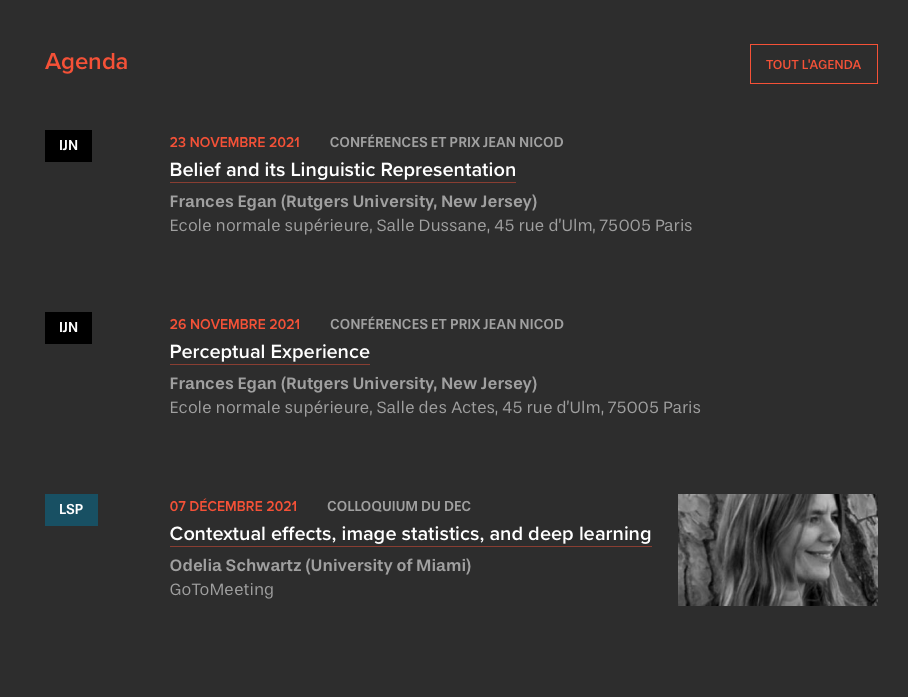
Un grand nombre de séminaires et de conférences données par les chercheur.ses du DEC ou par nos invité.e.s sont en accès libre :
- sur notre chaîne youtube,
- sur le site des Savoirs de l'ENS,
- sur la chaîne youtube de l'école
